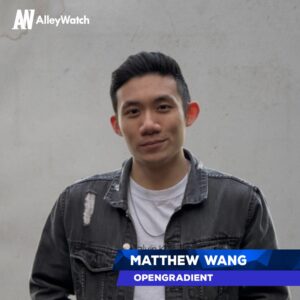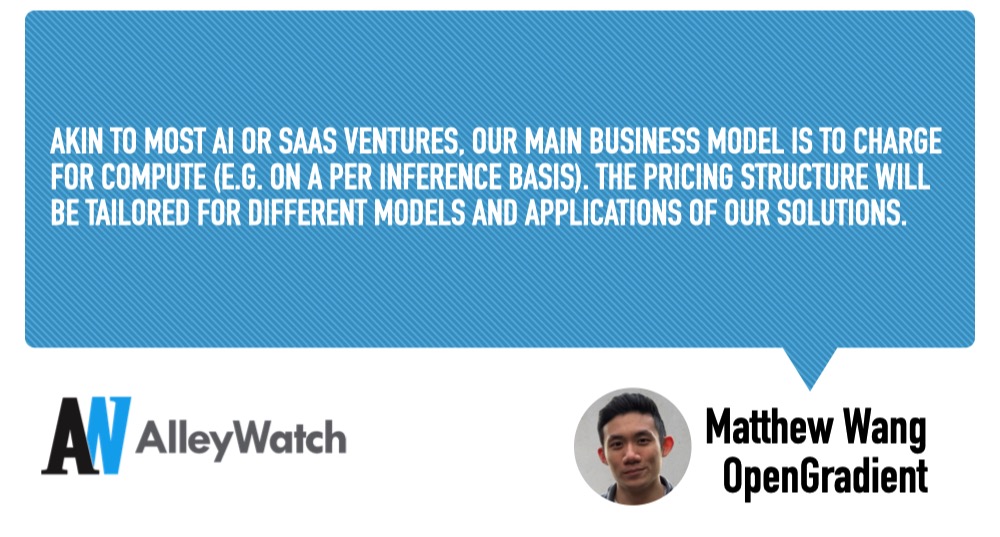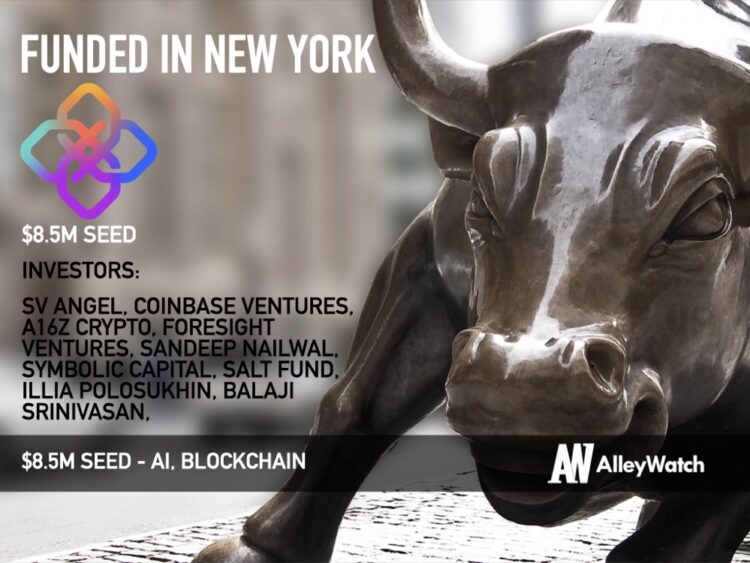The deployment of traditional AI systems presents two significant challenges: complexity and security concerns. However, blockchain technology, with its decentralized architecture, offers a potential solution to mitigate these risks. OpenGradient has developed an innovative end-to-end platform that leverages blockchain technology to decentralize AI infrastructure, providing not only computing resources but also a secure environment for hosting open-source AI models on-chain. The platform offers enhanced security measures, including TLS, zero-knowledge machine learning (zkML), and hardware enclaves, to ensure the integrity of all applications and models. By streamlining the infrastructure, the platform accelerates both the development and accessibility of open-source models while simultaneously ensuring model verifiability through an EVM-compatible blockchain. For developers, the platform offers a seamless experience comparable to Web2 development environments. Utilizing OpenGradient’s web portal and Software Development Kit (SDK), developers can create applications with the added benefits inherent to blockchain technology, such as enhanced decentralization and security. Beyond serving as a comprehensive library for AI models and offering specialized computing capabilities, OpenGradient is also at the forefront of research in emerging trends at the intersection of AI and cryptography. The company’s robust research initiatives focus on cutting-edge areas including decentralized DeFi, tokenomics, anomaly detection, and risk mitigation strategies.
AlleyWatch caught up with OpenGradient CEO Matthew Wang to learn more about the business, the company’s strategic plans, latest round of funding, which brings the company’s total funding to $9M, and much, much more…
Who were your investors and how much did you raise?
$8.5M Seed Round including
Funds: a16z CSX, Coinbase Ventures, SV Angel, SALT Fund, Foresight Ventures, Symbolic Capital, and more.
Angels: Illia Polosukhin (Founder of NEAR and inventor of AI Transformer models), Balaji Srinivasan (Ex-CTO of Coinbase), Sandeep Nailwal (Founder of Polygon), and more.
Tell us about the product or service that OpenGradient offers.
OpenGradient is an end-to-end decentralized AI platform for open-source model hosting, secure inference, agentic reasoning, and application deployment. By developing tooling and a feature-rich platform that makes developing AI workflows both secure and seamless, OpenGradient empowers developers with the ability to build optimized AI-empowered applications that are secured end-to-end with technologies like TLS, zkML, and hardware enclaves.
With native model hosting, permissionless composability, and secure inference execution, OpenGradient also aims to accelerate open-source AI by democratizing model ownership, improving verifiability guarantees, and promoting censorship-resistant model access.
What inspired the start of OpenGradient?
 I was fascinated by all the products and services unlocked by revolutionary tech developed by companies like OpenAI. However, as the impact of AI on our lives rises exponentially, the question of computational integrity becomes an increasingly compelling one. As an example, when ChatGPT was rolled out there were multiple forums where people were discussing whether OpenAI was hot-swapping models as people noticed a dramatic decrease in the quality of responses over time. Unfortunately, we’ll never be able to know if that’s the case as there is no verifiability of inference run on OpenAI’s servers; OpenGradient is here to change that, we believe in a world where computation should be secured end-to-end and completely verifiable for people to trust it with increasingly impactful tasks.
I was fascinated by all the products and services unlocked by revolutionary tech developed by companies like OpenAI. However, as the impact of AI on our lives rises exponentially, the question of computational integrity becomes an increasingly compelling one. As an example, when ChatGPT was rolled out there were multiple forums where people were discussing whether OpenAI was hot-swapping models as people noticed a dramatic decrease in the quality of responses over time. Unfortunately, we’ll never be able to know if that’s the case as there is no verifiability of inference run on OpenAI’s servers; OpenGradient is here to change that, we believe in a world where computation should be secured end-to-end and completely verifiable for people to trust it with increasingly impactful tasks.
How is OpenGradient different?
OpenGradient is different from existing solutions in two major ways. Firstly, we’re aiming to build a comprehensive solution that incorporates a variety of different measures for securing AI workflows end-to-end ranging from using TLS to secure data access to using hardware enclaves and zkML SNARKs to secure inference and storage of execution traces. Secondly, our solution is a fully decentralized distributed system; similar to IPFS, anyone can run a node to empower OpenGradient’s network to ensure models and compute are universally accessible and resistant to censorship.
What market does OpenGradient target and how big is it?
Our market size is fairly large because we’re targeting both traditional AI and Web3 developers and businesses. OpenGradient has identified product-market fit across multiple sectors, as an example we’ve pioneered research that has led blockchain application developers to build more intelligent decentralized applications that require the security offered by OpenGradient’s tech stack. From dynamic fee optimization for automated market-making applications to risk-management in lending protocols, our cutting-edge tech stack is reshaping secure AI development. Additionally, we provide a python SDK for Web2 AI developers, offering the security and composability of a decentralized infrastructure for enabling the creation, deployment, and inferencing of models in traditional AI workflows.
What’s your business model?
Akin to most AI or SAAS ventures, our main business model is to charge for compute (e.g. on a per inference basis). The pricing structure will be tailored for different models and applications of our solutions.

How are you preparing for a potential economic slowdown?
OpenGradient currently still has 2-3 years of runway and can weather an economic slowdown without needing to raise another round of funding. We believe the product we’re developing is innovative and recession-proof; regardless of whether there are macroeconomic headwinds or not, AI is here to stay and we believe OpenGradient will be the best solution for developers to run end-to-end AI workflows securely.
What was the funding process like?
We were fortunate enough to have amazing backers share in our vision and take a strong interest in what we were building. It was overall a smooth process for us and we quickly ended up with an oversubscribed round within weeks of starting our seed fundraise.
What are the biggest challenges that you faced while raising capital?
This is both my (Matthew) and Adam’s first venture, so I think the biggest challenge for us was understanding the value-add each investor can bring to the table in order to create a high-quality cap table with backers that can each contribute in their own way to our mission.
What factors about your business led your investors to write the check?
As this is a business that involves a lot of R&D, I believe the biggest differentiating factor that led to our successful fundraise was Adam and my strong track record in the respective industries we come from. I (Matthew) previously worked at Two Sigma as a research engineer, building modeling infrastructure and quantitative models for the equity options desk, I also have experience doing ML research. Adam was previously a tech lead at Palantir AIP (AI Platforms) where he led development efforts on their LLM reasoning infrastructure and AI agent execution system, which is deployed today with clients like the Ukrainian government.
What are the milestones you plan to achieve in the next six months?
The biggest milestones we have for the next six months involve continuing development of features on our platform (e.g. supporting langchain reasoning on our platform) as well as working with early launch partners to help onboard their AI workflows onto our infrastructure while doubling down on client acquisition. Additionally, we want to push developer education on the importance of security and computational integrity and plan to continue to put out research papers, articles, and literature to underscore the importance of secure and universally-accessible AI.
The biggest milestones we have for the next six months involve continuing development of features on our platform (e.g. supporting langchain reasoning on our platform) as well as working with early launch partners to help onboard their AI workflows onto our infrastructure while doubling down on client acquisition. Additionally, we want to push developer education on the importance of security and computational integrity and plan to continue to put out research papers, articles, and literature to underscore the importance of secure and universally-accessible AI.
What advice can you offer companies in New York that do not have a fresh injection of capital in the bank?
The best advice I can give is for the founders to bootstrap the venture themselves. Not only does it help get things off the ground before a venture funding round, but it also signals to investors that the founders themselves have conviction and are fully invested in the success of the startup. When Adam and I started OpenGradient we were bootstrapped for a couple of months, and did not start drawing a salary until the closing of our seed round.
Where do you see the company going in the near term?
We’ve spent a couple quarters heads-down focusing on R&D, and now we’re accelerating on working with early launch partners and actually creating impact with our technology. In the next couple quarters, we’re aiming to not just continue developing features, but actually start securing end-to-end AI workflows in production for our early clients.
What’s your favorite fall destination in and around the city?
Central Park is probably my favorite place to go running, especially in the fall when it’s no longer as hot and humid.





